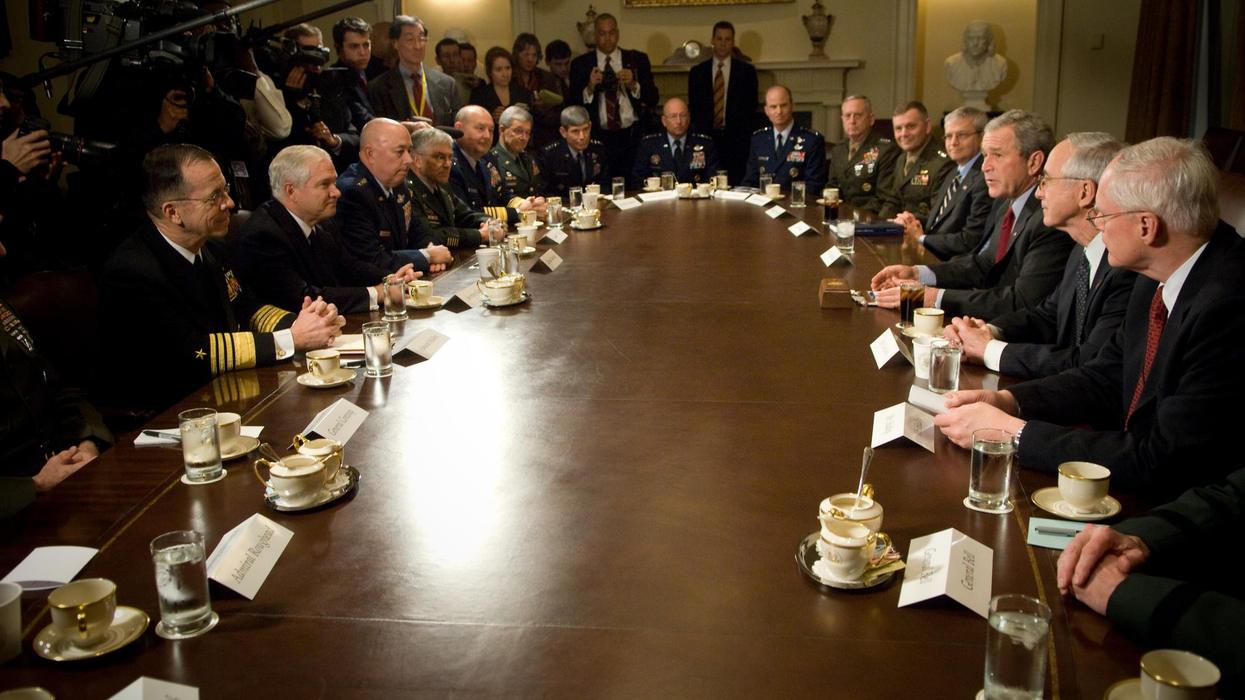America’s Taiwan policy hasn’t changed much in the past 40 years. For many experts, that’s a good thing. They argue that Washington’s careful balancing act between Beijing and Taipei, enshrined in part in the Taiwan Relations Act of 1979, has kept tensions low and allowed Taiwan to transform from a notorious dictatorship into a full-fledged democracy.
But Sens. Bob Menendez (D-N.J.) and Lindsey Graham (R-S.C.) aren’t satisfied with the status quo. The pair recently introduced a bill, known as the Taiwan Policy Act of 2022, that they touted as “the most comprehensive restructuring of U.S. policy towards Taiwan” since 1979. The Senate Foreign Relations Committee, which Menendez chairs, is set to take up the proposal on Wednesday.
Some of the bill’s most notable changes to U.S. policy include increasing military support for Taiwan, expanding Taipei’s role in international organizations, and laying out a harsh package of sanctions to be applied if Beijing engages in any “significant escalation in hostile action” toward the island.
Experts who spoke with Responsible Statecraft said these policies are likely to provoke a sharp response from China, further stoking tensions in the Taiwan Strait.
“These moves are provocative,” said Lyle Goldstein, the director of the Asia Engagement Program at Defense Priorities. “I think this is a very delicate period for Taiwan, and this kind of move would be very foolish.”
According to Michael Swaine of the Quincy Institute, the bill would undermine America’s traditional “One China policy,” under which Washington recognizes Beijing as the sole legitimate government of China and acknowledges that Chinese leaders consider Taiwan to be part of their territory.
“The document plays with words to seem as if no fundamentals have changed, but One China is in effect gutted,” Swaine said. “The One China policy has led to strong limits being placed on political, diplomatic, and military contacts with [Taiwan]. This bill, if passed and implemented by the administration, would add greatly to the existing erosion of such limits.”
Neither Menendez nor Graham responded to requests for comment about the bill and its potential consequences.
The proposed legislation comes amid a sharp increase in U.S.-China tensions, in part driven by Speaker of the House Nancy Pelosi’s planned visit to Taiwan (she left for Asia this weekend). Beijing said its military will not “sit idly by” if Pelosi follows through on the trip, which would be the first by a House speaker since 1997. And, in a call with President Joe Biden, Chinese leader Xi Jinping cautioned that “[t]hose who play with fire will perish by it,” according to Beijing’s readout of the meeting.
Biden and the Pentagon appear wary of the visit, but neither have gone so far as to say that Pelosi should cancel it. In an apparent reaction to China’s threats, the USS Ronald Reagan has begun sailing toward the Taiwan Strait, and Beijing has massed air power in the area, according to the South China Morning Post. While officials do not expect a direct confrontation, Chairman of the Joint Chiefs of Staff Gen. Mark Milley told reporters that DoD “will do what is necessary to ensure a safe conduct of their visit. And I’ll just leave it at that.”
Deterrence and its discontents
Some of the concern about the bill centers around its military provisions. While experts approved of measures that would help fast-track arms sales, some expressed concern over the proposal to drop previous commitments to only provide Taiwan with defensive weapons, replacing them with a pledge to send “arms conducive to deterring acts of aggression by the People’s Liberation Army.”
When it comes to military strategy, “deterrence” is in the eye of the beholder. The bill focuses on equipping Taipei with a wide range of weapons — possibly including long-range missiles capable of striking mainland China — that could discourage Beijing from making a move on the island. But for Goldstein, true deterrence could only be achieved through painstaking, time-intensive investment in infrastructure that would help Taiwanese forces hold strong against a Chinese invasion.
“Building Taiwan into a fortress involves hardening — that is, pouring concrete, digging deep into the earth,” he said. “That's the best way to defend Taiwan, but most people prefer to talk about fancy weapons systems.”
Eric Gomez of the Cato Institute was less critical of the weapons provisions, praising the bill’s general focus on “asymmetric defense.” But Gomez worries that the legislation risks pushing U.S. policy toward selling Taiwan “whatever it asked for.”
“In many respects, the Taiwanese ask for bad military equipment that isn't conducive to the kind of asymmetric defense mission that they need to be actually thinking about,” he said, adding that Taipei shouldn’t rely on U.S. arms at the expense of its domestic weapons industry.
The bill also provides for $4.5 billion in security assistance over the next 4 years, making Taiwan the world’s fourth leading recipient of U.S. military aid, behind only Israel, Egypt, and Ukraine. Some view this spending as excessive, especially given that Taiwan is a wealthy polity with a GDP per capita on par with highly developed countries like South Korea, Japan, and Italy, according to the International Monetary Fund.
The proposal says Taipei must boost its defense budget in order to access these funds, though it doesn’t specify by how much. Swaine, who said he has “no objection” to the U.S. providing significant defensive military aid, worries that this won’t do enough to encourage Taiwan to increase its own spending.
“This leaves Taiwan open to increase its defense spending by only one dollar over the previous year to qualify for U.S. assistance,” he said.
Too much clarity can be a dangerous thing
Several experts told Responsible Statecraft that they are most concerned about the section of the legislation dealing with sanctions, which threatens to tie the president’s hands in a policy area defined by flexibility. The bill lays out a raft of sanctions on just about everyone in China’s political elite, including President Xi Jinping, to be levied if China “is knowingly engaged in a significant escalation in hostile action” toward Taiwan since December 2021. Beyond individual punishments, the text would also force the president to place restrictions on a wide range of Chinese industries and financial institutions. If passed, the legislation would give Biden 15 days to decide if a violation has occurred, a decision he would have to reevaluate multiple times each year.
The “significant escalation” described in the proposal could include obvious provocations like occupying Taiwanese territory, but it could also comprise less tangible things like “undermining” Taipei’s governing institutions or “interfering with the territorial integrity of Taiwan.”
“It seems to invite broad interpretation,” said Gomez. “Undermining the governing institutions of Taiwan? Well shoot, espionage undermines government institutions, right?”
He also wondered if an increased number of Chinese incursions into Taiwan’s “air defense identification zone” — which includes a chunk of mainland China south of Shanghai — would trigger sanctions. “I don’t know,” he said, “but you could see how one could make an argument either for or against.”
Perhaps the most significant changes in the bill concern Taiwan’s diplomatic status. Among other things, the proposal would formally designate Taipei as a “major non-NATO ally” and elevate the status of the U.S. mission in the country to “de facto diplomatic treatment for Taiwan equivalent to other foreign governments.” It also calls on the president to promote Taiwan’s participation in international organizations — a thorny issue for China that the U.S. has generally stayed out of.
On these issues, the proposal is tailored to thread the needle, stopping just short of stated Chinese red lines. But, for many observers, it’s hard to imagine that China will view this as anything other than another incremental step away from official neutrality and toward support for Taiwanese independence. Gomez worries that the shift away from ambiguity could lead to disaster.
“I think that recipe of factors is sort of heading for a new, major crisis in the strait,” Gomez said. “And I don't think such a crisis needs to exist.”

















